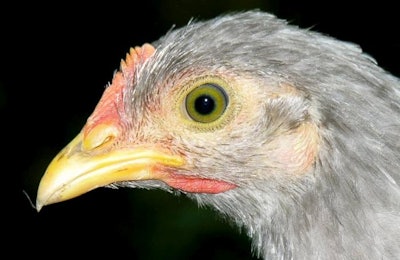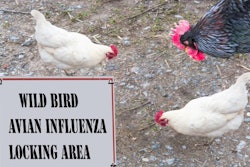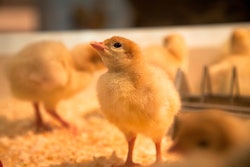
After an absence of around 10 months, H5N1 highly pathogenic avian influenza (HPAI) virus has been detected again in a Nigerian poultry flock.
Its presence was confirmed in mid-December last year, according to the official report to the World Organisation for Animal Health (OIE). Detection followed the mortality of almost all the 63 birds in a mixed backyard flock at Nassarawa in the northern state of Kano, according to the agriculture ministry.
According to the OIE, outbreaks of H5N6 and H5N8 HPAI are also ongoing in Nigeria.
Five million Nigerian poultry jobs at risk
The future of the poultry sector in Nigeria is under extreme pressure, the national sector association warned recently. For the Poultry Association of the Nigeria, the threat is represented by the continued high costs of poultry feed, reported Guardian of Nigeria.
To safeguard the livelihoods of five million people who work in the sector and country’s food security, an Association representative called on the federal government to allow imports of feed-grade corn. Furthermore, he urged a halt on exports of soy.
These measures would help to sustain the industry in the southwest of the country until the next harvest, he said.
Key to the nation’s poultry supply, this region accounts for 60% of total production. Its population includes 50 million laying hens, 100 million broiler chickens, and one million breeding birds.
In September of 2020, the USDA Foreign Agricultural Service (FAS) described the grain market situation in Nigeria as “dire.” It identified the causes as a combination of lockdowns linked to the coronavirus (COVID-19) pandemic, weak currency, social/political insecurity, and climate change.
Following a 13% drop in the annual harvest, FAS asserted that Nigeria will have to rely on imports for corn (as well as rice and wheat). Designed to protect local producers, the country’s trade policies are holding back the domestic food supply chains, raising food prices, and adding to unemployment.
In its report, FAS identified Nigeria’s poultry sector as the most threatened by high corn prices — particularly as consumers are highly resistant to increase in prices of poultry products.
Mauritania, Senegal report first HPAI cases in wild birds
Over the past week, the H5N1 HPAI virus has been reported in wild birds for the first time in two more African countries. In both cases, the virus was detected following mass mortalities among pelicans.
In mid-January, 822 pelicans died suddenly at Djoudj in the Saint Louis region of Senegal, according to the official report to the OIE. Source of the infection is thought to be migratory birds. The region is in the north of the country, and shares a border with Mauritania.
Shortly before the mass mortality of pelicans, the same virus had been detected in a commercial poultry flock further south in the region of Thies.
Just across the international frontier from Saint Louis is the department of Keur-Massene of Mauritania. In this part of the Trarza region, the national authorities have also recently registered with the OIE mass mortality among a large flock of wild pelicans.
More cases of mild avian flu among South African ostriches
Since an H7 low-pathogenic avian influenza (LPAI) virus was first detected in the country in November last, the number of outbreaks has now reached 22. All have occurred in Western Cape Province among commercial ostrich flocks.
According to the latest official report to the OIE, five birds tested positive for the virus out of 155 ostriches at a farm near Oudtshoorn in January. Within days, the virus was detected in four of 39 birds near Hessequa.
So far, the veterinary authority states it has been unable to determine the neuraminidase (N) portion of the virus.
Outbreaks of HPAI linked to the H5N6 and H5N8 virus variants are also ongoing in South Africa, according to the OIE.
Avian flu absent from Morocco
No cases of avian flu have been detected on the country’s poultry farms, according to Morocco World News. The statement was made last month by the national federation of poultry breeders following the present series of outbreaks in other states in Africa, Asia and Europe.
View our continuing coverage of the global avian influenza situation.















